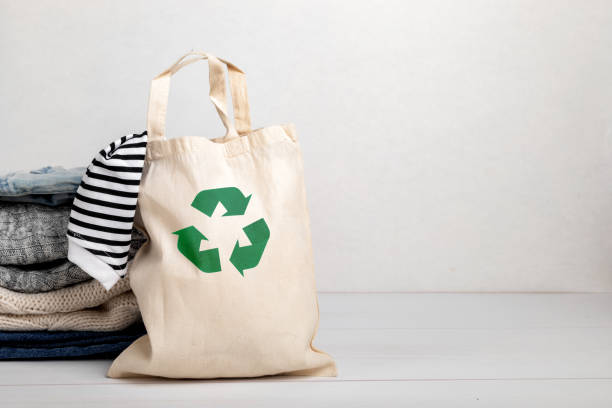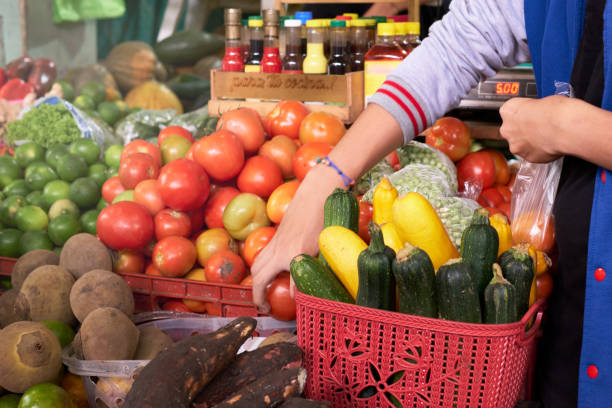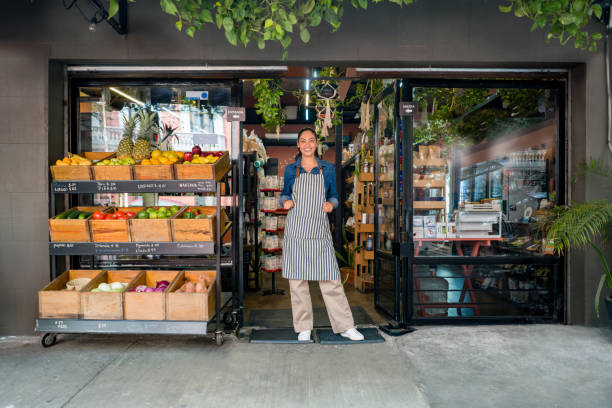Eco-conscious consumers are choosing zero waste stores for their shopping needs. For good reason, these stores are prospering because they offer packaged-free or reduced packaging options. A growing number of consumers are aware of the detrimental effects of their shopping practices on the environment, and they are taking action to lower their negative ecological impact.
What is a Zero Waste Store?

To reduce waste and limit their environmental impact, most major retailers have modified how they operate at this point. However, unless a store establishes clear sustainability guidelines and proves its efforts towards zero waste shopping, it can usually do more.
As a relatively new movement, zero waste stores have shown that physical shops can survive and flourish without contributing to the problems facing the planet. Despite its benefits, online shopping has its drawbacks as well. With people becoming more aware of today’s environmental issues, more and more are choosing to shop at dedicated package free shops instead.
How does Shopping in Zero Waste Stores Work?

The goal of zero waste shopping is to eliminate food and non-food packaging, and to get rid of all plastic use throughout the entire process.
Offering customers a natural alternative, for instance, bamboo toothbrush holder, to pumping laundry liquid and washing up liquid into old squirt bottles to selling pasta, grains, seeds, and dried fruit in hoppers; zero waste stores encourage consumers to reuse whatever containers they already own, and where possible, make their packaging completely biodegradable.
By doing so, we can reduce our daily consumption and safeguard the environment.
10 Key Benefits of Zero Waste Stores

At the end of the day, what are the practical benefits of a zero waste shop for the planet and for us, as consumers? Below are some reasons why zero waste shopping is a good idea.
1. Reduction in plastic waste
Around 300 million tons of plastic are produced worldwide each year. Almost half of this waste is designed to be discarded after just a few uses, which is even more alarming. Unless our behavior changes, our oceans may contain more plastic than fish by 2050.
Our oceans and landfills are accumulating plastic at an unprecedented rate, leading to environmental degradation. There is still hope, though. It is possible to solve this looming crisis by adopting zero waste shopping practices.
To ensure a cleaner, healthier environment for future generations, we can choose package-free goods and sustainable alternatives. A zero waste shop is your first step towards a greener future and a decisive step away from the plastic epidemic.
2. Better physical health
In many cases, packaged foods are not always unhealthy, but unhealthy foods often come in a lot of packaging. Think of what you see at the grocery store – loose vegetables, fruit, and even legumes if you’re lucky – all healthy and unpackaged. Chips, candy, and cookies? It’s all plastic.
It is often impossible to recycle thin packaging. Simply shopping, cooking, and eating healthy is one of the zero waste health benefits. You’ll also make better decisions for the entire life cycle of the products you buy when you’re forced to slow down and think about what you’re buying at the grocery store!
3. Prevents unnecessary spending
Many people make emotional purchases, which are buying things they don’t need or want when they feel stressed or upset, regardless of whether they know it. Buying impulse items makes you feel good, so you make them. The goal of zero waste entails avoiding spending money on unnecessary (if not unwanted) things and avoiding emotional spending.
At the moment, zero waste products are more expensive than disposable products, but as more people embrace its benefits, prices will likely come down. Moreover, zero-waste goods last far longer than comparable products, so higher costs are usually due to higher quality.
Zero waste is all about reusing, repairing, and repurposing things that have reached the end of their lives (or would have if they were still thrown away). A zero-waste lifestyle also allows you to save money by reusing rather than replacing it.
4. Lowers carbon footprint
The first thing we need to understand is what ‘carbon footprint’ means. It is a measure of the total amount of gas emitted by human activities, mainly carbon dioxide. Carbon footprints are created by everything we do, from eating to buying. What is a primary contributor? Buying products and transporting them.
Locally sourced products are a priority in many zero waste shops. Long-haul transportation reduces greenhouse gas emissions, which are a significant source of them. Supporting local producers and reducing carbon emissions through local sourcing is beneficial to both.
5. Their items tend to last longer
How does all this plastic waste get disposed of? There are a few ingenious people who use it in their products. Many local governments use it to pave their roads, for instance. Plastic does not biodegrade very quickly, which is a drawback. The silver lining to this downside is that reusing these plastics will make products last a long time. Furthermore, recycled plastic is cheaper because of its low price. Is this the end of potholes?
6. Organic and fresh produce
It’s common to find fresh, organic produce on the shelves of zero waste grocery stores. Fresh produce is prioritized in zero waste shops. Why is this so? Maintaining freshness remains paramount without excessive packaging.
Besides offering fresh produce, many zero waste shops offer organic food as well. Pesticides, herbicides, and synthetic fertilizers are usually not used on fruits, vegetables, and grains. This will reduce your carbon footprint and make you and your family healthier.
The benefits of purchasing zero waste fresh and organic produce are twofold: you get to taste the goodness of natural products while minimizing your environmental impact.
7. Reducing food waste
People often think about plastic packaging and paper bags when they think about waste and how to avoid it. There are 22% of US landfills devoted to disposing of food, which is the largest component in MSW.
The goal of zero waste is to divert this food (which is frequently perfectly edible) from landfills. As well as the environmental benefits, redirected food waste can have a significant social impact by being donated to community agencies, homes, and individuals. Additionally, the money saved by reducing food waste can be invested in projects that contribute to sustainability.
Visit this post to learn How to Reduce Food Waste through Sustainable Packaging Methods.
8. Eliminate packaging
A zero waste shop is characterized by reducing waste through eco-friendly packaging options. There is no individual packaging for products, so any packaging that usually comes home with a shopping trip and ends up being thrown away is exchanged for either our own repurposed containers or glass jars and paper bags at the store.
9. Less localized pollution
Through reduced deliveries and visits to the store, along with less trash burned in incinerators, zero waste can help reduce localized pollution in neighborhoods, cities, and towns. A reduced amount of trash in landfills means more available space for use and a reduced risk of toxins contaminating groundwater. With all of these factors combined, communities become happier and healthier, and the same applies globally.
10. Builds community
Nowadays, in the age of vast virtual networks, people are yearning for real connections with their communities. These zero waste stores nurture real, tangible ties between communities, not just venues for shopping.
Workshops on everything from DIY crafts to sustainable living can be found at many zero waste stores. Locals are not only educated during these workshops, but they also meet, exchange ideas, and bond over similar values.
Events are frequently organized by zero waste stores in addition to workshops. Local farmer’s days and swaps are two examples, where you can interact with your food growers and exchange goods. It promotes a sense of belonging, allowing patrons to interact with one another rather than just being customers.
Bonus Points:
- Conservation of resources
Additionally, repurposing and repairing what was previously considered waste, as well as reducing the amount of unnecessary packaging, will conserve natural resources. The more we recycle, the more we will achieve our zero waste goals. This minimizes the environmental impact of mining and ensures a circular economy by reducing the number of raw materials required for manufacturing.
- Bulk purchases
Bulk buying raw produce from a zero waste shop can save you many repeat trips if you’re going to get through it a lot and need to top up often. Your shopping will become less frequent, resulting in less carbon emissions, and you will save yourself valuable time as well.
Conclusion
Why not take your next shopping trip to a zero waste store if you’ve never been? There’s something for everyone, whether you’re looking for local or organic produce, or you’re interested in supporting local artisans. You never know, right? Taking one step towards a more sustainable lifestyle could be the beginning of a transformative journey for you.
As a store owner, realize that zero waste shopping can have a huge impact on consumer experiences. This experience is not only about eating healthier, buying ethically, and supporting a local community, it’s also about being immersed.
Check out this article to learn more about Zero Waste Grocery Shopping Tips.







